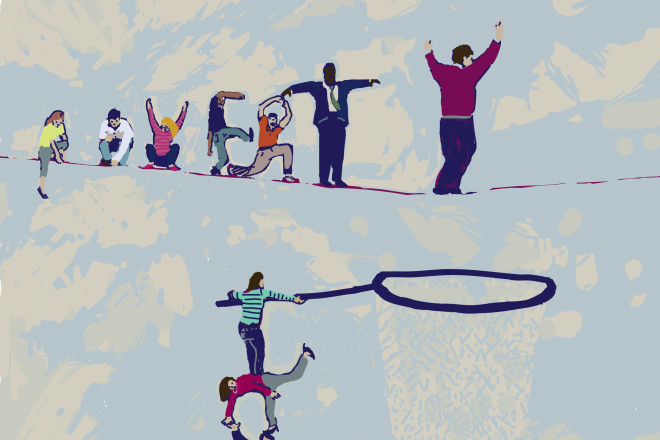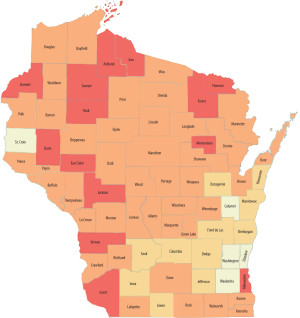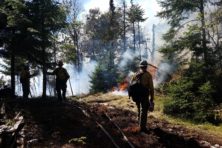Opening Eyes to Poverty
- Share
- Tweet
- Pin
- Share

Everyone has stories of eating ramen noodles during college or economizing in some manner at some point in life just to get by. That is circumstantial poverty, which is not the same as the daily grind of being at the very bottom of the economic strata in this land of plenty.
Living in poverty means not having access to the many things the economically sound take for granted, things such as food, a warm home with running water and electricity, medical and legal services, the possibilities that come with higher education, and, especially, any hope of a bright future.
On this peninsula where people come to play and get away from the mundane circumstances of their daily reality, it is easy to forget that true poverty exists. Look away from it, and, poof, poverty disappears.
The multi-million dollar tourism industry in Door County would not continue to grow if poverty were more visible here, but it is not, thanks in large part to the economic safety nets put in place by a number of agencies and organizations throughout Door County.
Many of those saved by the safety nets are suffering from circumstantial poverty, often through circumstances beyond their control, but the chain of events could easily spiral them downward into abject, lifelong poverty without those societal safety nets.
And that, it turns out, is the very definition of philanthropy: The practice of giving money and time to help make life better for other people.
Those throwing out safety nets include Door County’s Human Services Department, the Lakeshore Community Action Program, Feed My People/Clothe My People, churches that run food pantries and all the supporters who keep the shelves stocked. This issue is filled with tales of groups and individuals who are making a difference by paying attention to the poverty around them, here in Door County and beyond.
The focus of our feature story is the one-stop shop agency We Are HOPE, Inc. in Sturgeon Bay, which provides a wide variety of services to help people become or return to being productive members of society – that might mean something as simple as insulating a home against the cold or as complex as finding a job for someone with a disability.
We Are HOPE, Inc. CEO Sandy Duckett points out in the story that many people have a misconception of who seeks the kind of help her agency and others like it provide to the poor.
“I have yet to see somebody come into this agency who has felt entitled,” Duckett said. “People think others are taking advantage of the system, but I can tell you everybody who has stepped through this door are people who have never found themselves in these circumstances before, and who don’t like asking for help. We’ve had some very successful people who have found themselves in this situation because of the economy.”
We also included thoughts from poverty researcher Timothy Smeeding, director of the Institute for Research on Poverty (IRP) and Arts and Sciences Distinguished Professor of Public Affairs at the La Follette School of Public Affairs at the University of Wisconsin – Madison.
“The real solution to poverty is jobs, and we’re not doing too well with those,” Smeeding said.
In lieu of jobs, Smeeding believes in safety nets.
“Earnings-based and market income-based poverty have been rising. That means we’re going to need safety nets until we have enough work and higher earnings,” he said.
So, dig in and learn how people in our community are making a difference. You might just feel inspired to make a difference yourself.


